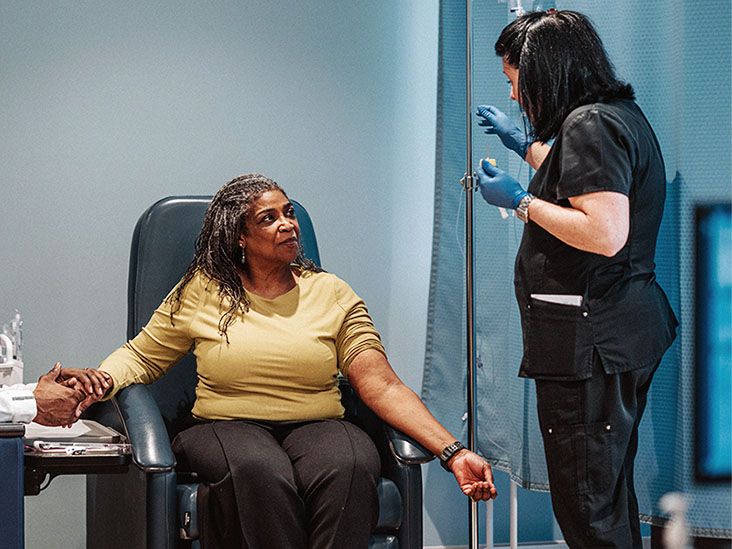Picture this: You're sitting on the edge of your bed, bills scattered around you, phone receiver still warm from another fruitless call. You've tried everything called your insurance company three times, dialed 1-800-MEDICARE until your finger ached, even asked that super helpful neighbor who seems to know everyone. Nothing's working, and you're starting to feel like you're shouting into a void. Sound familiar?
Here's the thing you're not alone, and there's actually someone specifically designed to help when you feel completely stuck. Enter the Medicare Beneficiary Ombudsman, or MBO for short. Think of them as that wise friend who knows how to navigate the system when everyone else seems to hit dead ends. They won't wave a magic wand and fix everything instantly, but they'll make sure your voice actually gets heard where it matters most.
What Exactly Is the MBO?
Let's cut through the jargon and get real about what the Medicare Beneficiary Ombudsman actually does. Imagine you're at a crowded party, trying to get the attention of someone across the room that's pretty much what dealing with Medicare can feel like sometimes. The MBO is like having a trusted friend who knows exactly how to whisper in the right ears to make sure your concerns don't get lost in the noise.
This isn't your typical customer service representative. The MBO doesn't make decisions about your coverage or benefits, and they can't override what Medicare or your insurance company has already decided. What they do bring to the table is something just as valuable they're your advocate when you need someone to look out for your best interests without any personal agenda.
Here's how it works in practice: When you've exhausted all your other options and still feel like you're getting nowhere, the MBO steps in to review your situation. They look at your case with fresh eyes, help you understand your rights, and most importantly, they know exactly which department or person needs to hear about your specific issue.
Let me tell you about Maria, a 72-year-old retiree from Florida who was facing a billing nightmare with her Medicare Advantage plan. She'd been on hold with customer service for hours, received conflicting information from three different representatives, and felt completely overwhelmed. After speaking with a 1-800-MEDICARE representative, her case was forwarded to the MBO. Within two weeks, she not only understood the steps to resolve her billing dispute but also received clear guidance on how to prevent similar issues in the future. Sometimes, having someone advocate for you makes all the difference between feeling helpless and feeling empowered.
When Should You Reach Out?
Here's where things get important knowing when to bring in the big guns (or in this case, the MBO). You wouldn't call a specialist for a paper cut, right? Same principle applies here. The MBO is your ace in the hole when you've already tried the more direct approaches and still haven't found a solution.
You should consider reaching out to the MBO when you're dealing with unresolved issues that are genuinely affecting your healthcare access or financial well-being. This might include persistent billing disputes, coverage denials that don't seem to make sense, or situations where you feel like you're being passed from one department to another without any real progress.
Some specific situations where the MBO can be particularly helpful include problems with Medicare Advantage plans (Part C), issues with Medicare Part D prescription drug coverage, or concerns about Original Medicare services. Maybe your claim keeps getting rejected despite having the right documentation, or perhaps there's a delay in receiving necessary medical equipment that's impacting your daily life.
However, there are times when the MBO isn't the right fit. If your insurance company has already resolved your issue to your satisfaction, there's no need to involve them. During medical emergencies, your focus should be on getting immediate care rather than navigating administrative processes. And honestly, for first-time complaints, it's usually best to start with the more direct routes your insurance company, 1-800-MEDICARE, or your local SHIP counselor.
The process might sound a bit formal, but it's actually pretty straightforward. First, you try working directly with your Medicare plan or calling 1-800-MEDICARE. If that doesn't resolve things, you ask the 1-800-MEDICARE representative to refer your case to the MBO. They take a look, investigate what's happening behind the scenes, and then connect you with the resources or next steps that are most likely to help.
Your Rights as a Medicare Beneficiary
Here's something that doesn't get talked about enough you actually have rights as a Medicare beneficiary, and knowing what they are can be incredibly empowering. Think of these rights like a toolkit they're there for you to use whenever you need them, and the MBO is essentially there to help you understand how to use that toolkit effectively.
You have the right to quality healthcare that meets professional standards, the right to be fully informed about your benefits and coverage options, and the right to appeal decisions that affect your care or coverage. You also have the right to privacy regarding your medical information and protection from discrimination based on your health status, race, gender, or other factors.
These rights aren't just words on a website they're the foundation of a system that's supposed to work for you. When something goes wrong, these rights give you the framework to understand what went awry and how it should be fixed. The folks at Medicare.gov have a comprehensive section called "Your Rights in Medicare" that's worth bookmarking for reference.
Now, here's an important distinction to understand: While the MBO can't enforce decisions or make things happen overnight, they play a crucial role in ensuring that violations of your rights don't go unnoticed. They track patterns and trends, make sure the right oversight agencies are aware of recurring issues, and help create visibility for problems that might otherwise get swept under the rug.
Say you're experiencing delays in receiving medical equipment that was supposed to be covered under your plan. The MBO can't magically make the equipment appear tomorrow, but they can investigate why there's a pattern of delays, ensure the proper quality improvement organizations are aware of the issue, and help you understand whether this might be affecting other beneficiaries as well.
How to Get MBO Help
Getting help from the MBO isn't like calling your neighbor for advice there's a specific process that ensures your case gets to the right people. And here's a key point: you don't contact the MBO directly. Think of it like a referral system you work through 1-800-MEDICARE to get connected to the right advocate for your situation.
The first step is calling 1-800-MEDICARE at 1-800-633-4227 (TTY: 1-877-486-2048 for hearing-impaired callers). When you reach a representative, clearly explain the problem you're experiencing, especially emphasizing that you've already tried working with your plan and haven't found a resolution. Ask the rep to forward your inquiry or complaint to the Medicare Beneficiary Ombudsman. It's that simple.
Here's something that might surprise you you don't have to navigate this process alone. Family members, caregivers, legal guardians, SHIP counselors, or patient advocates can all reach out on your behalf. This can be especially helpful if you're dealing with complex issues or if you're feeling overwhelmed by the process.
The timing can vary sometimes you'll hear back within a few days, other times it might take a few weeks. This isn't a reflection of whether your case is important, but rather how complex the issue is and how many different parties might need to be involved in finding a resolution.
Alternative Support Resources
The MBO is an incredible resource, but they're not the only game in town when it comes to getting help with Medicare issues. Think of them as part of an ecosystem of support each organization has its own unique role and expertise.
SHIP (State Health Insurance Assistance Programs) offers personalized, one-on-one counseling specifically for Medicare beneficiaries. These programs are staffed by trained volunteers who understand the local landscape and can provide guidance tailored to your specific situation. If you're looking for someone to sit down with you and walk through your options, SHIP might be exactly what you need.
BFCC-QIO (Beneficiary and Family Centered Care Quality Improvement Organization) focuses specifically on quality of care issues and appeals. If you're concerned about the standard of medical care you're receiving or need help with an appeal process, they're the go-to resource.
State Survey Agencies investigate complaints about healthcare facilities like nursing homes, hospitals, or assisted living facilities. These organizations handle the regulatory side of facility oversight and can investigate specific concerns about resident care.
| Organization | Who They Help | Service Type |
|---|---|---|
| Medicare Ombudsman (MBO) | Medicare beneficiaries | Advocacy & referral only |
| SHIP | Medicare-only | Personalized counseling |
| BFCC-QIO | All Medicare users | Quality of care / appeals |
| State Survey Agency | Residents in care facilities | Facility inspections/complaints |
Understanding the Limitations
Let's be honest about this the MBO isn't a miracle worker, and understanding their limitations is just as important as understanding their strengths. They can't override decisions made by Medicare or your insurance company, and responses can sometimes take time depending on the complexity of your situation.
There's also no guarantee that the outcome will be what you're hoping for. Sometimes, after all the investigation and advocacy, the original decision stands. This can be frustrating and disappointing, especially when you've invested time and energy into pursuing resolution.
But here's why it's still worth considering the MBO brings visibility to your case in ways that individual appeals or complaints simply cannot. They look for patterns and trends that might indicate systemic issues, which means your individual problem could contribute to broader improvements in the Medicare system.
Remember too that having someone advocate for your case increases the chances that it will be thoroughly reviewed. When you're dealing with complex bureaucracies, sometimes what's needed most is someone who knows how to navigate the system and ensure that all the right people are paying attention to your situation.
Wrapping It All Up
Here's the heart of what I want you to take away from all this: The Medicare Beneficiary Ombudsman isn't here to make instant miracles happen, but they are here to make sure you're not navigating the Medicare maze alone. They're your advocate, your guide, and sometimes, your best chance at getting a complex issue the attention it deserves.
Think of the MBO as your final option before throwing in the towel. If you've already tried calling your insurance company, contacted 1-800-MEDICARE, and still feel like you're spinning your wheels, don't hesitate to ask a representative to submit your issue to the MBO. Sometimes having that extra layer of advocacy is exactly what tips the scales toward resolution.
And always remember you're not alone in this journey. Whether it's the SHIP counselors in your community, the dedicated staff at 1-800-MEDICARE, or the MBO themselves, there are people who genuinely want to help you get the healthcare support you deserve.
Medicare can feel overwhelming, especially when you're dealing with issues on top of everything else. But armed with the right information and knowing where to turn for help, you can navigate these challenges with confidence. The system might be complex, but that doesn't mean it has to feel impossible.
So the next time you're sitting there with that phone receiver in your hand, feeling like you've tried everything, remember that there's one more resource worth exploring. The Medicare Beneficiary Ombudsman might just be the advocate you've been waiting for.
FAQs
What is the Medicare Beneficiary Ombudsman?
The Medicare Beneficiary Ombudsman (MBO) is a free advocacy service that helps Medicare beneficiaries resolve persistent issues with their coverage, claims, or benefits when other options have failed.
How do I contact the Medicare Ombudsman?
You can reach the MBO by calling 1-800-MEDICARE and asking a representative to refer your case to the Ombudsman. Direct contact with the MBO is not allowed.
When should I involve the MBO?
Consider involving the MBO when you’ve already tried resolving your issue with your Medicare plan and 1-800-MEDICARE but still haven’t received a satisfying solution.
Can the MBO change Medicare decisions?
No, the MBO cannot override decisions made by Medicare or your insurance company. However, they can advocate on your behalf and help identify the right steps for resolution.
What types of issues can the MBO help with?
The MBO assists with unresolved billing disputes, claim denials, delays in service, and coverage issues related to Medicare Advantage, Part D, or Original Medicare.
Disclaimer: This article is for informational purposes only and does not constitute medical advice. Always consult with a healthcare professional before starting any new treatment regimen.
Related Coverage
Consuming very large amounts of vegetables may cause nutrient imbalances, thyroid issues, kidney stones and other problems in rare cases. Stick to recommended portions....
Get the facts on IV infusions Medicare coverage, including what's covered, out-of-pocket costs, and how to find approved providers....
Find the best Medicare in Delaware options for you or your loved ones with our simple guide to coverage, costs, and enrollment....
Navigating Medicare in Ohio doesn't have to be hard. Find the right coverage with our simple guide to plans, costs, and enrollment....
Embrace the power of superfoods and elevate your conscious lifestyle. Discover 15 nutrient-dense powerhouses that offer a wealth of benefits for your body, mind, and spirit....
Find the best Alaska Medicare plans for 2025. Compare Part D, Medigap, and Original Medicare options tailored to your needs....
Find the right Nevada Medicare plans with ease. Compare options and enroll in Medicare coverage tailored to your needs today....
Find the best Medicare in Colorado options for your needs. Compare plans, save money, and make confident health coverage decisions....
Lose weight without sacrificing flavor. Discover 50 delicious weight loss foods like fruits, vegetables, whole grains, lean proteins, healthy fats and spices....
Learn how Medicare Advantage benefits work, what’s included, and how to choose the right plan for your health and budget....









